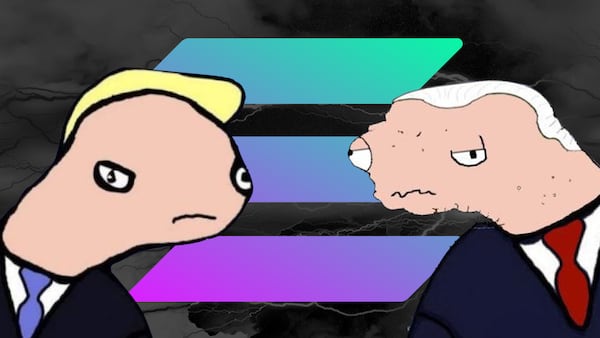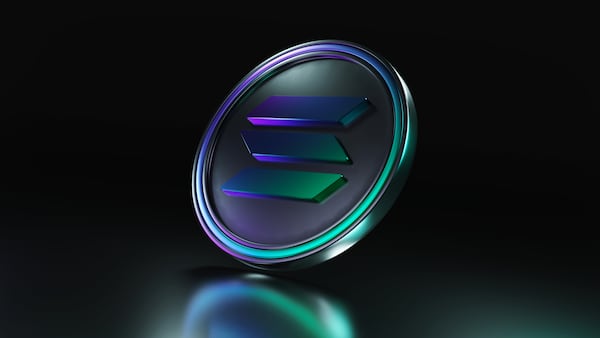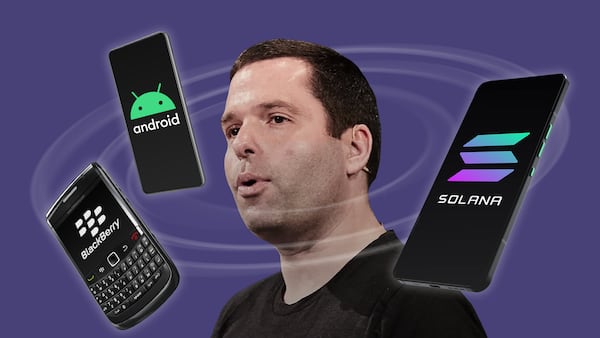- PayPal helped define Solana's token extensions feature.
- More than 420 million PayPal accounts can now use Solana's network.
- Ethereum and Solana race to capture titanic payments space.
In its long-running rivalry with Ethereum, Solana has enlisted a surprising new ally — PayPal.
The online payments pioneer has agreed to add its stablecoin, PYUSD, to the Solana blockchain network, the two companies said on Wednesday.
While PayPal already makes its stablecoin available on Ethereum, the development bolsters Solana’s credibility in the colossal payments processing space. The market is worth $2.6 trillion and is expected to grow to almost $5 trillion by 2029.
A JPMorgan Chase report from a few years ago even concluded that new technologies and consumer behaviour may lead to $54 trillion in global payment flows.
Duel with Ethereum
PayPal users can choose between sending and receiving the stablecoin on Solana or Ethereum from their PayPal accounts and Venmo wallets.
Sizing up the duel with Ethereum, Sheraz Shere, the Solana Foundation’s general manager of payments, said the slower transaction speeds on Ethereum layer 1 networks create a valuable opportunity.
“I think there’s a lot of use cases that have probably been throttled because of the nature of transacting on Ethereum layer 1 that will be lit up once PYUSD is on Solana because it’s faster and cheaper,” Shere told DL News.
Solana processes payments at nearly 2,000 transactions per second, according to Solana analytics platform Solscan. Ethereum averages 15 transactions per second. Solana also costs less to use.
The deal is major for Solana. With over 420 million active accounts, PayPal is a force in the global payments space and has proven nimble at adapting to new technologies such as stablecoins.
PayPal, as it happens, is chasing its own rival. In December, Visa expanded its stablecoin pilot with Circle — another large stablecoin issuer — to Solana to improve settlement times.
The key to cracking the global payments market is partnerships. The process of sending a payment digitally from point A to point B is fraught with complexity and regulatory realities.
No player, let alone a crypto startup, can do it alone.
Yet the advent of stablecoins is changing the game. As easy-to-use tools for converting fiat currencies into cryptocurrencies, industry stalwarts quickly recognised their utility.
Now, the race is on to develop what payments geeks call “rails” — the conduits payments use to make the journey from sender to receiver.
Three year collaboration
Engineers at PayPal and Solana have been in discussions for three years to make PYUSD work on the blockchain network’s rails, said Shere.
One key area was Solana’s token extensions feature. This allows token issuers to create specific conditions for who can interact with the asset being created on the network and to block those who can’t.
For regulated entities like PayPal and Visa, this is crucial. They need to be able to satisfy authorities such as the US Treasury Department’s Office of Foreign Assets Control that no sanctioned addresses are parties to payments on the network.
“A lot of the development of token extensions was done in partnership with PayPal, understanding their requirements,” Shere said. “They’re actually minting the PYUSD token using the extension standard.”
Shere said PYUSD’s utility in cross-border payments and remittances opens up mammoth markets in the space. He hopes Solana can tap into other parts of its business, too.
“One area I think about is the PayPal merchant base,” said Shere, who spent eight years at American Express doing business development.
“Something that PayPal could do to activate the PYUSD coin in their ecosystem is give all the PayPal merchants a Solana address to accept PYUSD.”
Liam Kelly is a Berlin-based DL News’ correspondent. Contact him at liam@dlnews.com.






